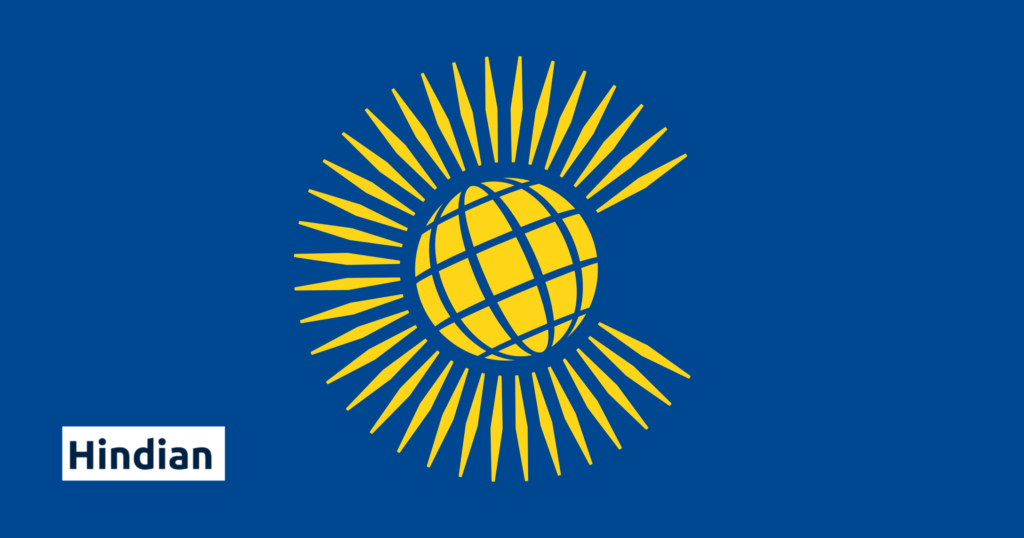In 1947, India broke free from the brutal grip of the British Empire — an empire that looted, enslaved, and humiliated our civilization for over two centuries. Yet, in an astonishing contradiction, India continues to be a member of the Commonwealth of Nations, an organization rooted in colonial legacy. Why does a nation that takes pride in its independence and cultural resurgence still choose to remain under the symbolic umbrella of its former oppressor?
This article is a bold critique of India’s continued membership in the Commonwealth, questioning the motivations, exposing the hypocrisies, and demanding a complete break from this outdated imperial network.
• The Commonwealth: A Softer Name for a Brutal Legacy
The Commonwealth is often packaged as a peaceful community of 56 “equal” nations that once shared historical ties with the British Crown. In reality, it is a cosmetic repackaging of empire — where the British monarchy still plays a ceremonial role, and where the architecture of participation is designed by the very power that once ruled over us.
The head of the Commonwealth is King Charles III, not elected, not rotated, not shared — but inherited.
Its very origins lie in preserving British influence after the collapse of its empire.
It promotes a sanitized version of history that glosses over the horrors of colonialism.
By participating, India lends legitimacy to this sanitized narrative and fails to confront the full truth of its colonial past.
• Flimsy Justifications, Weak Returns
India’s foreign policy circles often defend Commonwealth membership with arguments like educational scholarships, diplomatic dialogue, and cultural exchange. But in reality, these benefits are superficial at best.
• Trade & Diplomacy
India’s major trade partners — the US, China, EU, UAE — are outside the Commonwealth.
India already exercises global influence through G20, BRICS, SCO, and the UN.
• Education & Culture
India doesn’t need token scholarships when it is building world-class institutions and becoming an educational hub.
Cultural exchange? Our ancient civilization has much more to offer the world than to receive from a colonial club.
So, what exactly is India gaining? Nothing that justifies the compromise of its historical dignity.
• An Affront to Indian Civilizational Pride
India is the land of Chanakya, Aryabhatta, Swami Vivekananda, and Subhas Chandra Bose — thinkers, warriors, and revolutionaries who would have vehemently opposed India’s association with any colonial institution. By remaining in the Commonwealth, India continues to operate within the intellectual and diplomatic framework designed by the very forces that destroyed our temples, looted our treasures, and disfigured our social fabric.
This isn’t merely symbolic — it’s psychological. It speaks of a post-colonial mindset still addicted to foreign validation.
• Where Is the Political Will?
India’s political establishment — across party lines — has displayed alarming hesitation in addressing this issue. Why?
Is it fear of diplomatic friction with the UK?
Is it elite colonial hangover dressed up as pragmatism?
Or is it simply laziness — an unwillingness to challenge historical injustice?
Whatever the reason, it is inexcusable. The time has come to demand more from our leaders — not just in terms of policies and projects, but in terms of civilizational courage.
• India Must Walk Away — With Its Head Held High
India does not need the Commonwealth. In fact, the Commonwealth needs India to stay relevant. If India were to leave, the symbolic blow to the organization’s legitimacy would be massive. And rightly so.
Let us remember:
Ireland walked away.
South Africa left and returned on its own terms.
Zimbabwe and The Gambia distanced themselves.
Why then does the world’s oldest living civilization, with the fifth-largest economy and a population of 1.4 billion, continue to play second fiddle in a club of colonizers and the colonized?
• Decolonization Is Not Complete
True freedom is not only about political sovereignty but also about mental liberation. Until India decisively exits the Commonwealth, we cannot claim to have broken free from our colonial chains. Our independence is incomplete so long as we continue to sit under structures born of our enslavement.
It is time for India to reclaim its full dignity — not just in history books, but in diplomacy, in thought, and in action.



